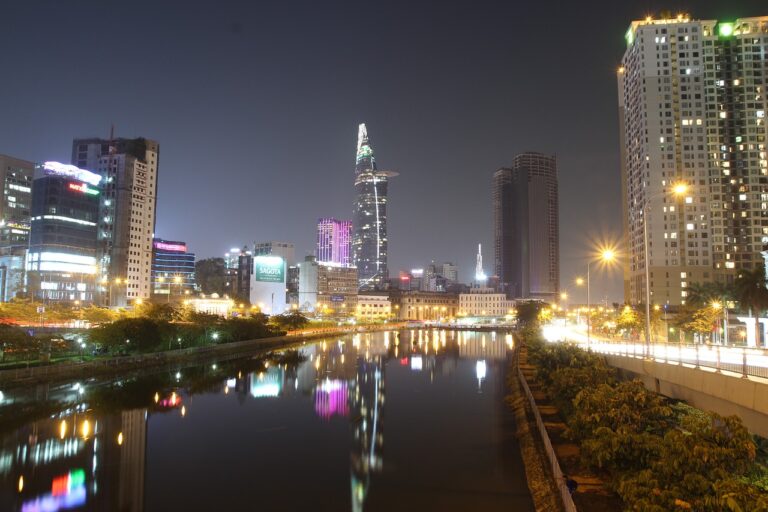Is Africa Safe for Tourists?
Africa presents a complex safety landscape for tourists, with diverse challenges across its 55 countries, including petty theft, scams, terrorism, and armed robbery. Regional instability, political unrest, and natural disasters pose added risks. However, with proper planning, research, and precautions, a safe and enjoyable journey is possible. Staying informed about local conditions, exercising caution, and respecting cultural norms are crucial. By understanding the unique challenges of each region and taking necessary measures, tourists can minimize risks and experience the beauty and wonder of Africa. As you venture into this incredible continent, discover the essential tips and secrets to staying safe and making the most of your African adventure, and get ready to immerse yourself in its wonders.
Understanding Africa's Safety Concerns
Across the 55 countries that comprise the African continent, a complex tapestry of safety concerns awaits tourists, ranging from petty theft and scams to more serious threats like terrorism and armed robbery. Understanding these concerns is essential for a safe and enjoyable journey. Regional instability, political unrest, and natural disasters can also pose risks. In addition, varying levels of infrastructure development and differing cultural norms can create challenges for travelers. To navigate these complexities, it's vital to stay informed about local conditions, exercise caution, and take necessary precautions. By doing so, tourists can minimize risks and focus on experiencing the rich cultural heritage, breathtaking landscapes, and warm hospitality that Africa has to offer.
Common Crimes Targeting Tourists
As tourists venture into Africa's vibrant cities and scenic landscapes, they become attractive targets for opportunistic criminals. Two of the most prevalent crimes affecting visitors are pickpocketing and theft, often occurring in crowded areas and public transportation, and scams and fraud, which can take many forms, from fake charity solicitations to rigged ATMs. By understanding these common crimes, travelers can take proactive measures to safeguard their belongings and avoid falling prey to cunning schemes.
Pickpocketing and Theft
In crowded markets and bustling streets, pickpocketing and theft are rampant, making it essential for tourists to be vigilant with their belongings at all times. Thieves often target distracted tourists, snatching valuables from bags or pockets. To minimize the risk, keep your valuables secure and out of sight. Use a money belt or a secure bag, and avoid carrying large amounts of cash. Be cautious in crowded areas, such as bus stations, train stations, and popular tourist attractions. Keep your luggage close and consider using a luggage tracker. Additionally, make copies of important documents and leave them in a safe place. By taking these precautions, you can reduce the risk of pickpocketing and theft, allowing you to focus on enjoying your African adventure.
Scams and Fraud
Fraudulent schemes and scams are rampant in Africa, targeting unsuspecting tourists with cleverly crafted ploys that can leave them financially drained and emotionally distressed. From fake charity solicitations to rigged ATMs, tourists must remain vigilant to avoid falling prey. A common scam involves locals approaching tourists with sob stories, claiming to be stranded or in need of assistance, only to demand money or valuables. Another tactic involves fraudulent vendors selling counterfeit goods or overcharging for services. To avoid scams, tourists should research local businesses, be cautious of overly friendly strangers, and verify the authenticity of products and services before making a purchase. By being aware of these tactics, tourists can minimize their risk of falling victim to scams and fraud in Africa.
Safe African Countries to Visit
Five African nations stand out for their exceptional safety records, welcoming tourists to experience their vibrant cultures and breathtaking landscapes. Botswana, known for its pristine wilderness and luxury safaris, is a prime destination for nature enthusiasts. Rwanda, with its stunning volcanoes and gorilla trekking opportunities, offers an unforgettable adventure. Mauritius, a tropical island nation, boasts crystal-clear waters and powdery white-sand beaches. Ghana, with its rich cultural heritage and historic slave forts, is a history buff's paradise. Finally, Namibia, with its rugged desert landscapes and iconic Skeleton Coast, is perfect for off-the-beaten-path travelers. These countries offer a unique blend of adventure, culture, and natural beauty, making them must-visit destinations for any intrepid traveler.
Avoiding Scams and Fraud
While exploring the wonders of Africa, it's just as essential to be mindful of the potential pitfalls, particularly scams and fraud, which can quickly turn a dream vacation into a financial nightmare. Be cautious of overly friendly locals offering unsolicited assistance, as they may have ulterior motives. Be wary of deals that seem too good to be true, and never give out personal or financial information to strangers. When using ATMs, opt for those located in secure, well-lit areas, and cover the keypad when entering your PIN. In addition, make photocopies of important documents, such as your passport, and keep them separate from the originals. By being vigilant and taking necessary precautions, you can minimize the risk of falling victim to scams and fraud, ensuring a safe and enjoyable African adventure.
Staying Healthy in Africa
As you prepare for your African adventure, it's essential to prioritize your health and wellbeing. Before and during your trip, it's vital to take proactive measures to prevent illnesses and stay healthy. By understanding the importance of vaccinations and medications, practicing water and food safety, and following disease prevention tips, you can minimize health risks and focus on enjoying the incredible experiences Africa has to offer.
Vaccinations and Medications
Travelers bound for Africa should prioritize vaccinations and medications to shield themselves from the region's unique health challenges, particularly those related to malaria, yellow fever, and other tropical diseases. Consult your doctor or a travel clinic to determine the necessary vaccinations and medications for your specific itinerary. The World Health Organization (WHO) and Centers for Disease Control and Prevention (CDC) provide guidance on recommended vaccinations for different African countries. Verify you have all the required vaccinations at least four to six weeks before departure. Additionally, consider taking antimalarial medication, depending on your destination. Don't forget to pack any prescribed medications and bring a copy of your vaccination record. By taking these precautions, you'll be well-prepared to tackle Africa's health challenges and focus on enjoying your adventure.
Water and Food Safety
Tap into local knowledge to navigate Africa's water and food landscape, where a simple mistake can spoil your adventure. In terms of water, stick to bottled or filtered water, and avoid consuming tap water, especially in rural areas. In restaurants, opt for cooked foods and avoid raw or undercooked meat, seafood, and eggs. Street food can be a delight, but make sure it's cooked thoroughly and served hot. Avoid eating from vendors that don't handle food hygienically. Peel fruits and vegetables before consuming, and avoid eating from buffets that have been left at room temperature for too long. By being mindful of these simple guidelines, you can minimize the risk of waterborne and foodborne illnesses, ensuring a healthy and enjoyable African adventure.
Disease Prevention Tips
Your health is your greatest asset while exploring Africa, and taking proactive measures against diseases will help you make the most of your adventure. To stay healthy, verify you're up-to-date on all recommended vaccinations before traveling. While in Africa, avoid insect bites by wearing long-sleeved clothing, applying insect repellent, and staying in air-conditioned or screened areas. Prevent malaria by taking antimalarial medication, if prescribed. Practice good hygiene by washing your hands frequently, especially before eating. Bring a water purification system or use bottled water to stay hydrated. Finally, pack a travel health kit with essentials like sunscreen, pain relievers, and antibacterial ointments. By taking these precautions, you'll be well-equipped to handle any health challenges that may arise during your African adventure.
Road Safety and Transportation
Across Africa, a complex network of roads, highways, and rural routes awaits tourists, but the real challenge lies in traversing them safely. With inadequate road maintenance, reckless driving, and inadequate lighting, road safety is a major concern. In rural areas, unpaved roads and limited signage make navigation challenging. To mitigate risks, tourists should choose reputable transportation services, avoid traveling at night, and always wear seatbelts. Additionally, consider hiring experienced drivers or guides familiar with local conditions. When renting vehicles, verify they are well-maintained and equipped with necessary safety features. By taking these precautions, tourists can minimize their exposure to road safety risks and enjoy a safe and enjoyable journey through Africa's diverse landscapes.
Natural Disasters and Diseases
Beyond the challenges of traversing Africa's roads, tourists must also contend with the unpredictable forces of nature and the ever-present threat of disease, which can quickly turn an adventure into a nightmare. Natural disasters like droughts, floods, and earthquakes can be devastating, and tourists should stay informed about weather conditions and local warnings. Diseases like malaria, yellow fever, and Ebola are prevalent in certain regions, and vaccinations, medications, and preventive measures are essential. It's vital to research the specific health risks associated with your destination and take necessary precautions. Stay up-to-date with local health advisories, and consider consulting a healthcare professional before setting out on your journey. By being prepared and taking necessary precautions, tourists can minimize their risk and enjoy a safe and unforgettable African adventure.
Cultural Differences and Etiquette
As tourists venture into Africa's vibrant cultural landscape, it's essential to acknowledge the significance of respecting local traditions and customs. Understanding the nuances of nonverbal cues, such as physical touch and eye contact, can greatly enrich the travel experience and foster meaningful connections with the local community. By being mindful of these cultural differences, travelers can avoid unintentionally offending their hosts and instead, engage in a rich and rewarding exchange of cultures.
Respecting Local Traditions
When traveling to Africa, embracing local customs and traditions is essential to having a respectful and enriching experience. Researching and understanding local norms, such as dress codes, greetings, and table manners, can go a long way in avoiding unintentional offense. For instance, in some African cultures, it's considered impolite to eat with your left hand, while in others, it's customary to remove your shoes before entering a home. Additionally, respecting local dress codes, such as covering your shoulders and knees, is vital in conservative regions. By being mindful of these cultural nuances, you can foster meaningful connections with locals and gain a deeper appreciation for Africa's rich cultural heritage.
Understanding Nonverbal Cues
In Africa, where cultural norms and customs can vary greatly from one region to another, being able to read and respond to nonverbal cues is essential to avoiding misunderstandings and building strong relationships with locals. Understanding nonverbal cues such as body language, facial expressions, and tone of voice can help you navigate complex social situations. For instance, in some African cultures, direct eye contact is seen as a sign of disrespect, while in others, it's a sign of confidence. In the same way, physical touch can be seen as a sign of friendship in some cultures, but as an invasion of personal space in others. By being attentive to these cues, you can avoid unintentionally offending locals and show respect for their customs.
Urban Safety and City Precautions
Frequently, tourists visiting African cities find themselves traversing unfamiliar urban landscapes, where petty theft, scams, and traffic accidents are common occurrences. To navigate these cities safely, it's essential to be aware of your surroundings and take necessary precautions. Avoid carrying large amounts of cash and opt for credit cards or traveler's checks instead. Keep valuables secure and be cautious of pickpocketing in crowded areas. When hailing taxis, verify they are licensed and reputable. Additionally, be mindful of traffic rules, as pedestrian crossings may not always be respected. By exercising caution and staying informed, you can minimize risks and enjoy the vibrant city life that Africa has to offer.
Pre-Trip Planning and Research
Before venturing into the uncharted territories of Africa, thorough pre-trip planning and research are essential to ensuring a safe and enjoyable journey. A well-planned trip can make all the difference in avoiding potential risks and staying safe. Researching your destination, understanding local customs, and staying informed about local conditions are crucial steps in preparing for your trip.
Here are some essential pre-trip planning tips:
- Check travel advisories: Stay informed about the latest travel warnings and advisories for your destination.
- Research local customs: Understand local laws, cultural norms, and traditions to avoid unintentionally offending locals.
- Plan your itinerary: Create a detailed itinerary, including transportation, accommodation, and activities.
- Stay connected: Register with your government's travel registration service and stay in touch with family and friends back home.



